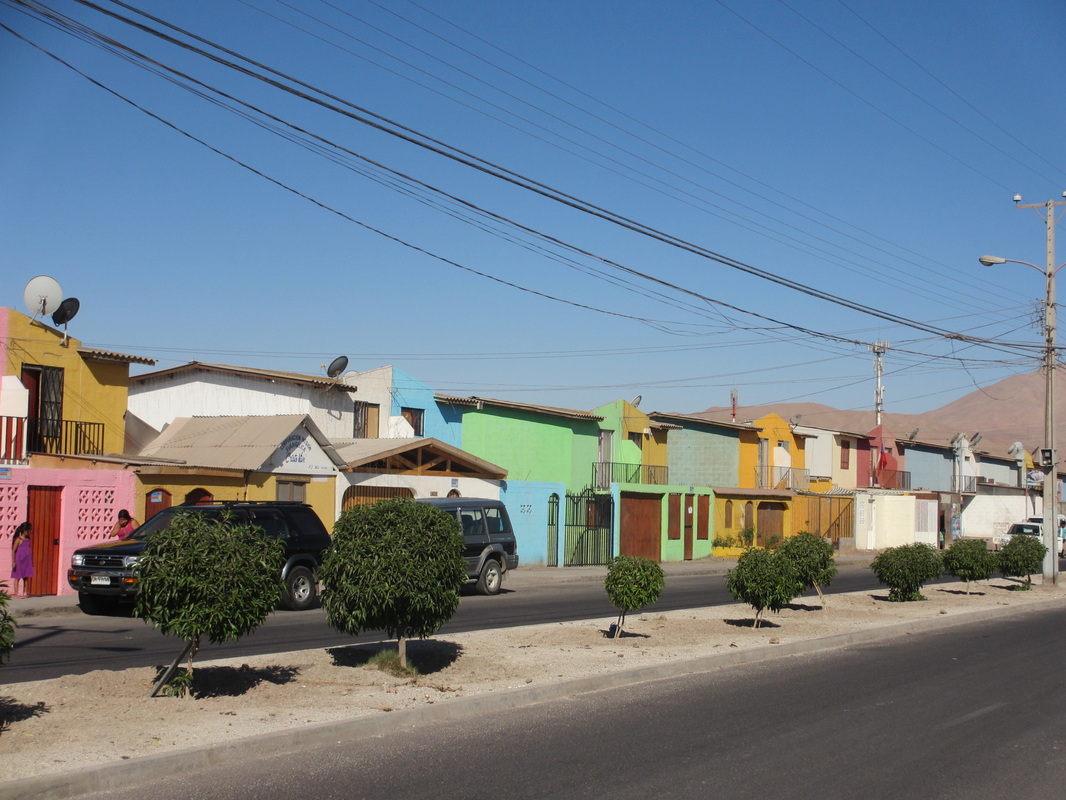A few days later, after Danny left, Miguel drove over to my apartment to help me with my fish tank (that I inherited with the apartment--and these fish are most definitely Chilean). With the sliding door to the balcony wide open, the car alarm sounds drifted in quite regularly. For a moment, he stopped and listened. “Is that your car?” I asked. “No, no…I don’t think so,” he responded. And we went about changing the water some more. I always assumed car alarms functioned by simply drawing attention-anyone’s-to something amiss. Yet, what Miguel was teaching me was that the car alarms did serve a purpose. People listened for their own. They took individual responsibility for the security of their own vehicle rather than relying on others to come to their rescue. And I suppose the fences may do the same. Though Danny is probably right that a serious criminal wouldn’t have much problem getting over one, it may communicate a certain individual capability to handle their own security. As a local priest told me, "neighbors like each other, but there's not much trust between them, anymore." There is no neighborhood watch group here.
One of the benefits of having Danny here was that it meant I was speaking English in public. This attracted even more attention than my usual simple fact of being noticeably white. While we walked through the market near the municipal gymnasium a few days ago, a group of vendedores asked where we were from. As we chatted, asking about all things digitally related from snapchat to international call centers, one woman, who sells clothing in the market told us people never have their phones out in public because they are afraid someone will come by and swipe it. The most recent statistics I could find were from 2008, when 1,236 non-violent robberies (the type that might result in having their cell phone stolen from their hands as they sit in the plaza, or their pocket in a busy market). This is not particularly high, roughly matching national statistics, yet I am given pause that perhaps many such thefts go unreported. About a year ago, Iquique Radio reported that online security company ESET found almost 60% of Latin American residents have had at least one cellular phone stolen. The Catholic priest also told me that the most recent statistics he has seen suggests that about 40% of Alto Hospicio residents have had some personal effect stolen in the last year. "Probably because their billfold or phone is sticking out of their pocket in a public place." While statistics like "40%" and "1,236 reported" might not necessarily reveal much, I do sense that cellular phone theft is quite common and the vendedora is correct: people know this and protect themselves by not using their phone in public.
So, I wonder then, if there is a certain “privateness” to the cell phone. And perhaps to the internet in general. Though one may interact with their friends though social media, that is generally something done while in private space. Even the local call center/internet café provides patrons with rather large cubicles while they use the computers. Though you might be airing your dirty laundry on facebook for all of your friends, the person physically next to you wouldn’t (or shouldn’t) know.
So these walls, these fences, these alarms, and these cubicles…they provide a sense of delineation. A car alarm may be tripped just as easily by someone doing a bad parking job or a ball thrown amiss as by someone trying to steal it. Fences can be jumped. Cubicles can be peeked around (at least one young man quickly turned off his porn as Danny and I walked by in the internet center). But that is not the point. The point, perhaps, is to say this is mine, and this is private. If you touch this, walk past it, or look at my screen, you are transgressing a boundary. So however social, social media might be, it ideally retains a sense of the private.

 RSS Feed
RSS Feed
